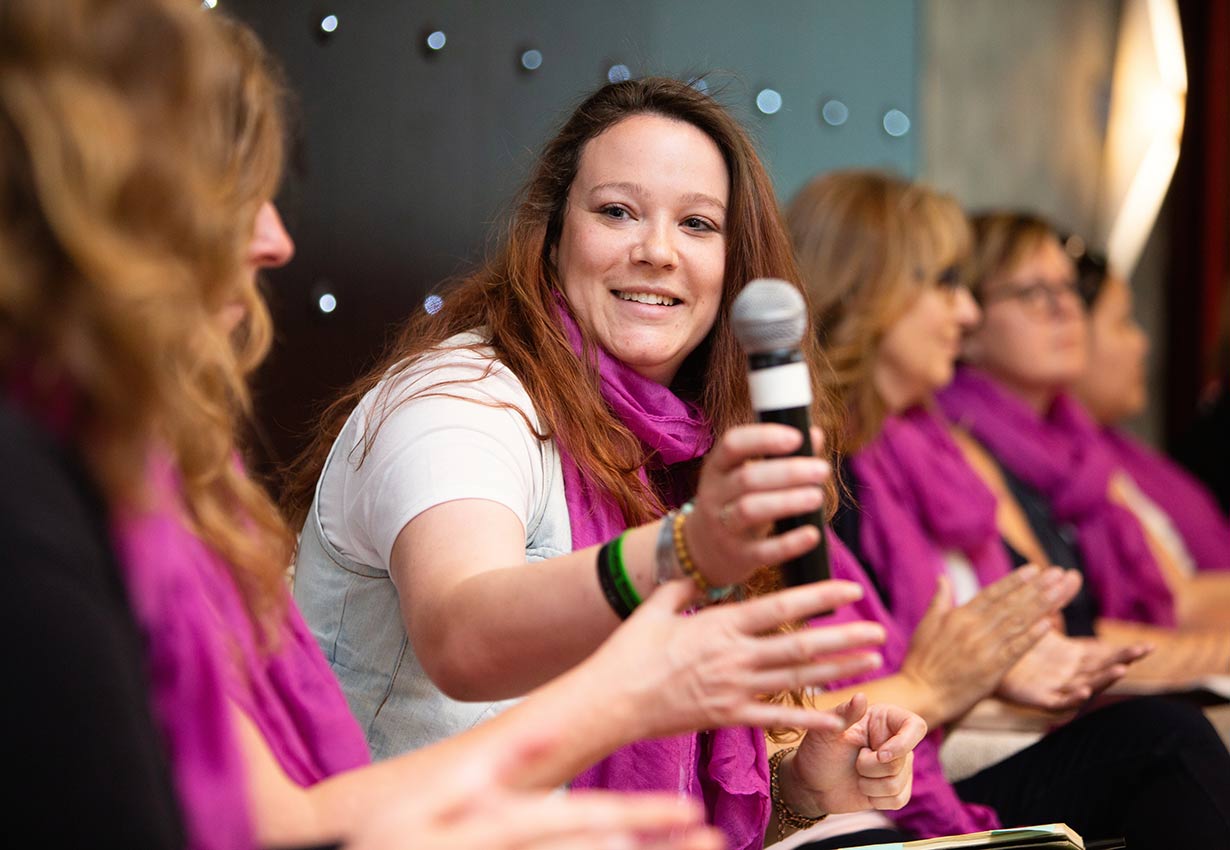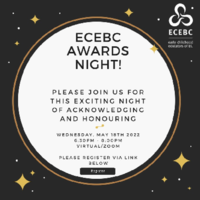ECEBC News
2022 ECEBC Conference
Published: February 11th, 2022
Join us online for the 2022 ECEBC Online Conference on May 13th to 14th, 2022 ACTIVATE: "In Dialogue with Vision and Voices" from 8:30am to 4:30pm both days.
Category:

Online Conference May 13th & 14th, 2022
ACTIVATE: "In Dialogue with Vision and Voices"
8:30am to 4:30pm
ECEBC's annual conference is a 2 day virtual conference this year with 2 breakout sessions on the Saturday where you can choose between workshop options for the morning and afternoon. Find out more about the conference schedule below and in the 2022 conference guide. If you have any questions regarding the conference please contact sonia@ecebc.ca.
ECEBC Awards Night!
May 18th, 6:30pm to 8:00pm
Please join us for this exciting night of acknowledging and honouring.
Hosted virtually on zoom. Please register at the link below:
https://us06web.zoom.us/meeting/register/tZEldeGvrzgoGtFnpaUGZZDHh36yXCk5wEoU
Conference Schedule
Everyone is invited to attend the keynote presentation and then select one workshop
from the morning session and one from the afternoon session.
Day 1: Friday May 13th, 2022
8:30am to 4:30pm
Grab a cup of coffee, a comfy chair and log on to join us!
Opening remarks to kick off the beginning of the two-day conference will begin at 9am.
Presenters: Brooke Richardson, Alana Powell & Lisa Johnston
Early childhood education and care (ECEC) in Canada has always had a vibrant social activist community. Scholars describe social activism at either the minor (program, community) and/or major (broader political) level. Guided by Moss’ (2017) position that there does not have to be an opposition between engagement in minor and major politics, this presentation explores the lived experiences and motivations of three early childhood educator social activists who seek to navigate both political places. Brooke Richardson, care scholar and President of the Association of Early Childhood Educators of Ontario (AECEO), Alana Powell, Executive Director of the AECEO, and Lisa Johnston, PhD student (York University), professor, educator and community leader, reflect on the tensions and possibilities they have and continue to struggle with when navigating between major and minor ECEC spaces and grapple with what this means/does for the early childhood educator, and why this matters in our current context. Drawing on feminist ethics of care, early childhood education and care advocacy is (re)conceptualized through a caring activism.
A chance to grab a bite to eat and return for our 1:00pm Panel Discussion.
This session is a panel discussion moderated by Veronica Pacini-Ketchabaw (BCECPN), to consider what conditions are necessary to create a livable, inclusive andjust early years system that reflects the complex pedagogical work undertaken byearly childhood educators. Joining Veronica to discuss diverse perspectives onthinking early childhood beyond a service are Nicole Inessh-Nash (AssistantProfessor, X University), Fikile Nxumalo (Assistant Professor, University of Toronto)and Peter Moss (Professor Emeritus, University College London)
Nicole Ineese-Nash is an Anishinaabe (Oji-Cree) scholar, educator and Assistant Professor at X University, whose work focuses on Indigenous experiences of social systems, understandings of land-knowledge, and community-based research. Her work centers Indigenous youth, families, and communities and seeks to support self-determination and Indigenous resurgence. She is particularly interested in supporting Indigenous youth to connect with their ancestry, land, and cultures. She is the director and founder of Finding Our Power Together, an Indigenous-led non-profit organization supporting youth in realizing their own goals.
Fikile Nxumalo is an Assistant Professor in the Department of Curriculum, Teaching & Learning at the Ontario Institute for Studies in Education, University of Toronto, where she directs the Childhood Place Pedagogy Lab. Her scholarship focuses on reconceptualizing place-based and environmental education within current times of ecological precarity. This scholarship is rooted in perspectives from Indigenous knowledges, Black feminist geographies, and critical post humanist theories.
Peter Moss is Emeritus Professor of Early Childhood Provision at UCL Institute of Education, University College London. He has researched and written on many subjects, including early childhood education and care; the relationship between employment, care and gender; and democracy in education. Much of his work has been cross-national, and he has led a European network on child care and an international network on parental leave.
Veronica Pacini-Ketchabaw, ECPN Co-Director, is a Professor of Early Childhood Education in the Faculty of Education and Director of the Interdisciplinary Centre for Research in Curriculum at Western University in Ontario, Canada. Her current research traces the common world relations of children with places, materials, and other species. She is interested in the real life-worlds that 21st-century children inherit, inhabit, and share with others – human and more-than-human; and how these life-worlds are shaped by the legacies of anthropogenic environmental damage, imperial expansion, colonial dispossession, global inequalities, and displacements
Closing remarks will begin at 3:30pm to wrap up the day!
Day 2: Saturday May 14th, 2022
8:30am to 4:30pm
Welcome back, we're happy you could join us this Saturday!
Opening remarks to kick off the beginning of the second day will begin at 9:00am!
In her address, Dr Mary Moloney discusses how the early childhood education and care workforce in Ireland has taken center stage in political, social and economic agendas in recent years. Historically, issues of accessibility, cost and affordability for parents have dominated discourse and policy in Ireland. Yet, while early childhood teachers work within a highly complex policy and practice landscape where they are subjected to multiple layers of governance, and increasing accountability, little, if any attention has been paid to the relationship between the ECEC workforce and the quality of provision. How then has the workforce risen to the top of political, social and economic agendas? Mary attributes this to the mobilisation of the sector and the involvement of the Big Start Campaign spearheaded by the union, SIPTU, all calling for reform of a sector that for years has been characterised by chronic underinvestment (0.1% approx., versus the Unicef recommended 1% of GDP). She asserts that the Irish Government is actively pursuing a reform agenda, which, she claims is transforming how the sector, and in particular, how the early childhood workforce is viewed in Ireland. Beginning in 2016, Mary tracks some of the major reforms directed toward professionalising the sector, culminating in the publication of two major policy initiatives: First 5, A Whole of Government Strategy for Babies, Young Children and their Families (Government of Ireland, 2019) and Nurturing Skills: The Workforce Plan for Early Learning and Care and School-Age Childcare 2022-2028 (Government of Ireland, 2021). She describes how Ireland has moved from a position of not requiring early childhood educators to hold any qualification to introducing a mandatory minimum requirement for all staff working directly with children in 2016, to establishing a 50% graduate-led workforce by 2028. Other elements of the reform agenda include sweeping changes to early childhood teacher preparation through the introduction of award criteria and guidelines for undergraduate degree programmes. None-theless, Mary claims that Government inaction on pay and working conditions has resulted in a disillusioned and disenfranchised workforce. Consequently, staff recruitment and retention is a major concern that could potentially derail the ambitious targets set out in First 5. It seems the Government is not prepared to stand by and let this happen. Mary explains how the budget package 2022 makes the strongest commitment ever to reforming pay and conditions for those working within the sector. Among the measures introduced in budget 2022, is a new core funding stream from September 2022, to help ECEC providers cover increased operating costs linked to quality improvement measures and to attract and retain staff, including degree-qualified staff. The Government has also established a Joint Labour Committee (JLC) which provides a wage-setting mechanism that determines terms and conditions of employment, as well as setting minimum rates of pay for workers in certain sectors. Perhaps as Mary argues, an ERO may not be the panacea for pay and conditions in the sector, it does however, offer hope for a different and brighter future for the early childhood workforce. The reform agenda is well and truly established, the sector is on an upward trajectory and there is no turning back
A quick break as everyone finds their online workshops.
Choose 1 workshop from the 2 offered for the morning:
Learning Outdoors Together
ECEBC and BCACCS came together to plan a course to encourage early childhood educators to get outside and learn from the land. Interviews with educators, Elders, and Knowledge keepers from around our province supplied the content for the course. Come and learn more about this project.
Enid Elliot, PhD:
I am an early childhood educator who has been continually surprised, intrigued and delighted by the babies, children, families and early childhood educators with whom I have worked, played and journeyed. I am currently on faculty at Camosun College and am an adjunct professor at University of Victoria. My current questions concern the pedagogies that emerge as educators and children explore/engage deeply with all the layers of the natural/material landscape found outside the walls, as well as learning from Indigenous worldviews and narratives that honour our connections with the natural world.
OR:
Indigenous Approaches to Early Learning
Join in an opportunity to have Candace who is our keynote speaker a Registered Early Childhood Educator on Learning as Ceremony, decolonizing instruction in the classroom and land-based learning and its significance on child development.
Candace Linklater is an Ililliew Cree from Moose Cree First Nation on Treaty 9 territory. She was born and raised on her reservation, and returned to her community after completing post-secondary school to serve as an educator, elected official, and community volunteer. Candace comes from a legacy of revolutionary leaders, as her great-great grandfather was a signatory to Treaty 9, and her grandfather was a trailblazing Chief that served for three terms. Needless to say, breaking glass ceilings is in her veins.
Candace is a Registered Early Childhood Educator with years of experience, along with a certified teacher with experience educating in her First Nation community. Candace also obtained her Masters in Indigenous Education and is currently enrolled in a PhD program in Education Leadership. She hopes to create pathways for reconciliation in education from toddlers to adults.
Grab a bite to eat and join us at 1:15pm for your second workshop.
Choose 1 workshop from the 2 offered for the afternoon:
Communities of Practice: Engaging with the Early Learning Framework
In this session participants will collaboratively engage in dialogue to think deeply about early childhood education. practice and possibilities. Drawing on current scholarship and the British Columbia Early Learning Framework, we will use pedagogical narration as a provocation to critically reflect on concepts and assumptions about early years pedagogy, childhood, and quality. The intention of this session is to provide opportunities for participants to consider ways of knowing, learning and living ‘that are local, inclusive, ethical and democratic.’ (British Columbia Early Learning Framework, 2019, p.11).
Kim Atkinson is an early childhood educator and writer who has worked in the early years field for over 40 years. She has travelled throughout BC facilitating dialogue and workshops for ECE’s, teachers, instructors and administrators. In her role as a pedagogist Kim supported educators to engage in dialogue on new ideas about quality care and education. Kim was the lead writer for the 2019 Early Learning Framework.
OR
Creating the path as we walk on it: ECE voices in a changing environment
Are you feeling like everything is changing and nothing is changing at the same time? Overwhelmed? Optimistic? Something in between? This session will invite you to articulate your personal experience of change and to hear how your colleagues are viewing change. Discover ideas for navigating change in ways that empower, connect, and move our sector forward.
Together we will explore:
- Metaphors as a tool to give new language and insights into change
- Social and emotional responses to uncertainty and change
- Narratives and actions that accompany our view of change
- Practices to stay rooted and lead through the journey of change
In addition, hear an overview about ECEBC’s newest initiative funded by Women and Gender Equality Canada (WAGE) called, Leading in a Changing Environment: Promoting the Voices of BC’s Early Care and Learning Sector. This 18-month initiative is set to launch in May 2022 and will invite 36 emerging leaders from across the province to create a personalized community action project.
Note: This interactive workshop offers time to reflect, imagine and express. You may want your favorite creative mediums on hand (journal/pens, sketchpad, colours/paints, or shaping materials).
Tammy Rose Dewar, has been learning with and walking alongside the Early Childhood community for thirty years. She has worked as an early childhood educator, family support worker, Early Years community developer, and a sessional post-secondary instructor. In the last decade, she has been a coach and consultant with the privilege of collaborating and co-creating with child, youth, family, and community service initiatives at local, regional, and provincial levels. Tammy is thrilled to be the project manager for ECEBC's newest initiative funded by Women and Gender Equality Canada (WAGE) called, Leading in a Changing Environment: Promoting the Voices of BC's Early Care and Learning Sector.
Time for a quick break as we move from our workshops to the final keynote of the conference.
Candace will speak on becoming the compassionate educator.
Closing remarks for the ACTIVATE: "In Dialogue with Vision and Voices" conference.
Keynote #1: Ethics of Care with Brooke Richardson, Alan Powell & Lisa Johnston
Fri. May 13th 9:00am
Lisa Johnston is a passionate Registered Early Childhood Educator and activist. She is the team lead for the Early Years Professionals RISE UP T.O. Community of Practice that is championing Early Childhood Educators to fight for Decent Work and Professional Pay in Toronto.
Alana Powell is the Executive Coordinator of the Association of Early Childhood Educators Ontario My work at the AECEO is different every day - we collaborate and listen to ECEs working in the field, analyze and respond to government policy and funding, meet with decision-makers to advocate for ECEs, support the sector through information sharing, webinars and professional learning, and build the collective voice of ECEs and early years staff across Ontario through our Decent Work Communities of Practice.
Brooke Richardson is a care activist and scholar motivated by the belief that good care is foundational to meaningful lives and a democratic society. She is currently an Adjunct Faculty in the Department of Sociology at Brock University and Instructor in the interdisciplinary Child and Youth Studies program at Carleton University. Her research and scholarly work focus on the childcare and child protection policy
Keynote #2: Mary Moloney
Sat. May 14th 9:30am
Dr Mary Moloney is BA ECCE course leader at Mary Immaculate College, Limerick, Ireland. She believes that young children deserve the best early childhood teachers. Having worked as an early childhood teacher herself for many years, and now as a lecturer, researcher and author, Mary continually advocates for the Early Childhood sector to be recognized as a critical element of the educational continuum. Mary has a keen interest in how early childhood policy translates into every day practice within settings, and in addressing the gap between policy and practice. She works tirelessly to advance the professionalization of the early childhood sector, promoting it as a valued, respected and rewarding profession. Mary has explored ECCE in many countries including Slovenia, Norway, Denmark, Italy, Sweden, New Zealand and California where she worked with the renowned Dr Marcy Whitebook and Dr Leah Austin at the Center for the Study of Child Care Employment (CSCCE). Mary is currently president of OMEP Ireland and the European Convener of the EECERA professionalization Special Interest Group
Keynote #3: Candace Linklater
Sat. May 14th 3:30pm
Candace Linklater is an Ililliew Cree from Moose Cree First Nation on Treaty 9 territory. She was born and raised on her reservation, and returned to her community after completing post-secondary school to serve as an educator, elected official, and community volunteer. Candace comes from a legacy of revolutionary leaders, as her great-great-grandfather was a signatory to Treaty 9, and her grandfather was a trailblazing Chief that served for three terms. Needless to say, breaking glass ceilings is in her veins.
Candace is a Registered Early Childhood Educator with years of experience, along with a certified teacher with experience educating in her First Nation community. Candace also obtained her Masters in Indigenous Education and is currently enrolled in a PhD program in Education Leadership. She hopes to create pathways for reconciliation in education from toddlers to adults.

